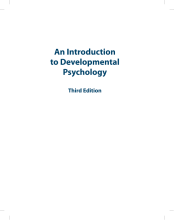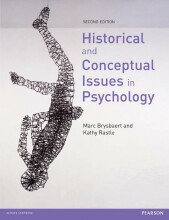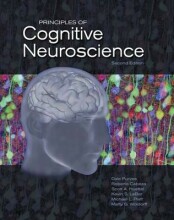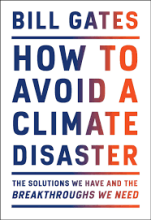The nature-nurture debate
29 important questions on The nature-nurture debate
How do we call a type of species in which the young are incapable of moving around on their own and are dependent on their parents for food and safety for a period of time after birth?
How do we call a type of species in which the young are physically mobile and able from the moment of birth or hatching?
How do we call the view that many skills or abilities are hard wired into the brain at birth, a result of genetic inheritance?
- Higher grades + faster learning
- Never study anything twice
- 100% sure, 100% understanding
How do we call the view that humans are not born with built-in core knowledge, or mental content, but that all knowledge is gained from learning and experiencing?
How do we call a measure of a person's level of intelligence compared to a population of individuals of the same age?
How do we call it when a test is created in a certain way to make the population vary around a mean?
Intelligence is a complex construct that consists of a lot of components, what is the underlying general factor that underlies performance on all components?
How do we call the percentage of variation in a trait in the population that is caused by variation in genetics?
How do we call the hypothesis that people become who they are as a consequence of their genetics?
How dow we call the hypothesis that people become who they are as a consequence of the learning and experiences they've had?
How do we call the resemblance between relatives whose genetic relationship to each other is known?
What percentage of their genes is similar with dizygotic, or fraternal, twins?
How do we call the failure to find any of the genes associated with cognitive abilities?
How do we call an individual's inherited genetics?
How do we call the result of appearance from interaction of the expressed genotype and the environment?
How do we call a genetic mutation that results in severe mental retardation and learning difficulties?
How do we call a collections of lung disorders such as emphysema, bronchitis and airflow obstruction?
How do we call the building blocks of the fat in our body, and the food we eat?
When is natural or survival selection the motor of evolution?
What are the properties of heredity?
- measures variance, not a biological mechanism
- changing over populations and time
- measures at a population level, not an individual level.
How do we call someone that remains stable for a trait under whatever circumstances they'll be put in?
How do we call someone that are vulnerable under negative conditions, but excel under positive conditions for a trait?
What does the orchid dandelion founding tells us about how genes interact with the environment?
How do we call changes in developmental functions of a child that are the result from a changing environment?
How do we call the increase in average IQ test scores over generations?
How do we call a condition where people's diet does not contain the right amount of nutrients?
How do we call the minimum level of income deemed adequate in a particular country?
How do we call a method of epigenetics where a methyl-molecule binds to a DNA molecule to express it or inhibit it?
What is the final statement about nature-nurture?
The question on the page originate from the summary of the following study material:
- A unique study and practice tool
- Never study anything twice again
- Get the grades you hope for
- 100% sure, 100% understanding
































